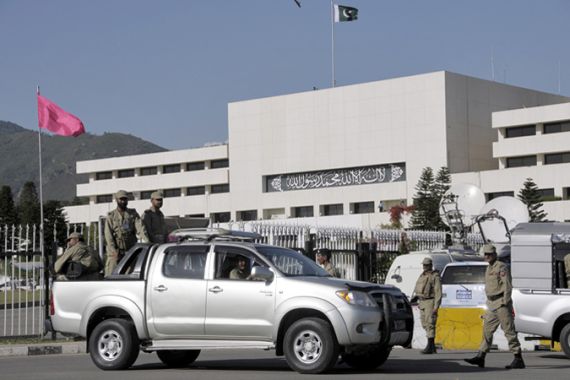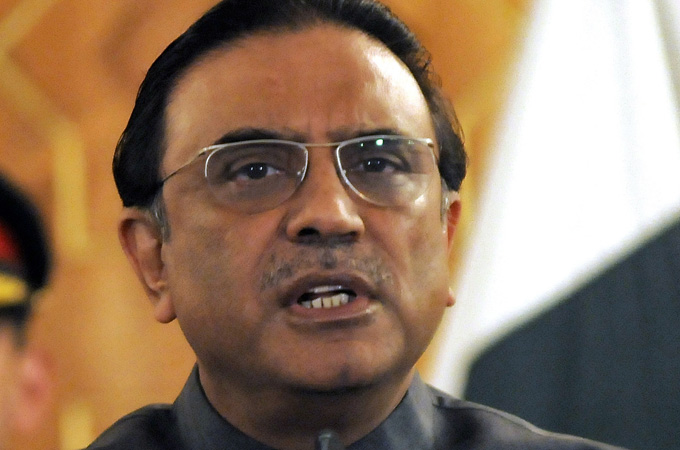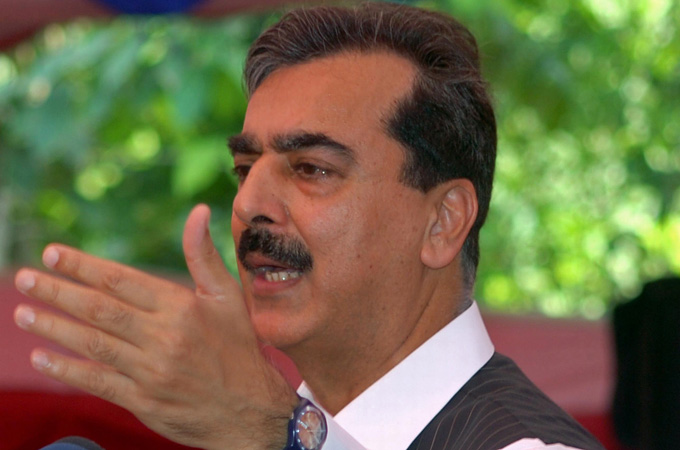Pakistan suspends scores of MPs
Election body suspends 148 legislators for failing to declare assets as tensions grow between government and judiciary.

 |
| Pakistan is in political turmoil amid a legal battle over corruption centering on President Zardari [EPA] |
Nearly 150 elected representatives to Pakistan’s parliament and regional assemblies have been suspended by the election commission for not declaring their assets.
Monday’s decision means the legislators cannot attend house sessions or vote.
Al Jazeera’s Kamal Hyder, reporting from the capital, Islamabad, said those suspended included members of the national parliament and of the provincial assemblies.
“The move has come as a big surprise,” he said. “It includes MPs from different political parties.”
He said the election commission had also recently discovered that many elected members of parliament had forged documents relating to their educational qualifications.
“We’ve been told that the credentials of more than 400 parliamentarians are in question because earlier, there was a rule that only graduates were qualified to be elected as members of parliament, so many of them gave fake degrees to the election commission.”
Legislators must submit yearly reports of their wealth in an effort to prevent corruption. Afzal Khan, the election commission spokesman, said those who submitted the required reports to the body would be reinstated.
Ameen Jan, a political analyst and Pakistani business consultant in London, said the suspensions are likely to undermine the parliament’s credibility but will probably not affect legislation.
“I don’t think there is any great, new legislation that is going to be on hold due to this,” he told Al Jazeera.
“The Pakistani parliament is not one that is focused on lots of policy issues. It’s going to be another crisis that it faces. It’s probably going to be resolved by those parliamentarians, probably rustling after relevant documents and producing them.”
Legal battle
The suspensions come as the Pakistani prime minister is due to give a statement to the country’s chief justice to clarify the government’s position regarding plans to dismiss judges.
Yousuf Raza Gilani aims to allay fears of a looming clash between the executive and judiciary over longstanding corruption cases, having pledged to work with judges to uphold justice.
 |
| Prime Minister Gilani has pledged to work with judges to uphold justice [EPA] |
“There is no possibility of a clash between the state institutions in our presence,” Gilani said in a televised address on Sunday night.
“The executive and the judiciary will have to work together to provide legal, social and economic justice to the people.”
Gilani’s remarks came against the backdrop of a legal battle that the government has been fighting in the supreme court over corruption charges centering on Asif Ali Zardari, Pakistan’s president, that could test his authority.
Pakistan’s highest court has been locked in a standoff with Zardari’s administration since December, when its judges scrapped an amnesty that protected the president and 8,000 other people from corruption charges.
The court says that the government must proceed with the cases, including a multi-million-dollar money-laundering case against Zardari in Switzerland that remains on hold.
But the government has so far stalled on the court’s request to send a letter to Swiss authorities to reopen the case, and judges last week criticised the government’s inertia.
‘Fragile government’
Aamir Latif, from Pakistan’s Online News Network, told Al Jazeera that despite the government being very unpopular, it is still in a good bargaining position.
“The government is very fragile … and its popularity is declining every day, but the army and the government are powerful,” he said.
“The confrontation between the government and the judiciary is assuming alarming proportions because of the non-implementation of the court orders, apparently at the behest of Zardari, who is a corruption-tainted man in Pakistan.
“But the government feels comfortable because it knows the establishment has no other choice at the moment. If it ousts the government, there would be a political crisis and there is no other party that could fill this gap.”
Zardari’s term in office is due to end in 2013, although few Pakistani civilian governments complete full terms.
The amnesty was codefied in October 2007 by then-president Pervez Musharraf, who was under international pressure to hold democratic elections and end about eight years of military rule.
Rehman Malik, the interior minister, and Ahmed Mukhtar, the defence minister, are among more than 30 politicians who had cases against them withdrawn under the amnesty which covers 3,478 cases ranging from murder, embezzlement and abuse of power to write-offs of bank loans worth millions of dollars.